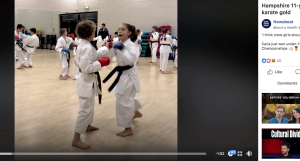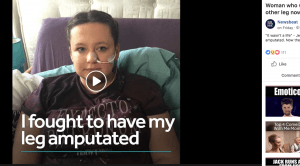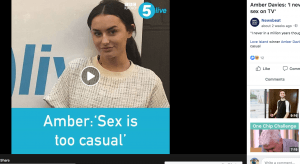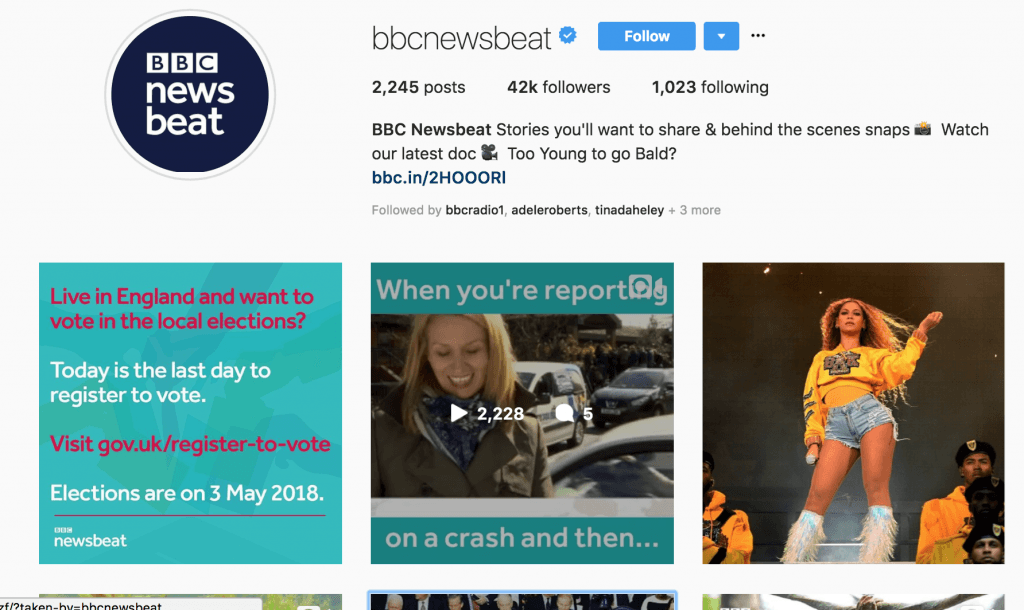This blog post will analyse how to make a professional piece of audio that is suitable to be used in a demo, or in a portfolio, this is my third learning objective, despite using this learning objective from my last project I feel it is relevant because of me not fulfilling it last time.
Firstly I looked at a BBC academy page which had 8 tips for producing good radio demos.
1. Focus. Work out what type of presenter/producer you want to be – always tailor your demo accordingly. Take inspiration from your heroes, but don’t imitate. Remember you can always have more than one demo, like a tailored CV.
2. Don’t start the demo with the opening menu of a show and finish with goodbye. Don’t welcome the audience to the show – you’re joining them. There’s no need for more than three-four seconds of music when introing and outroing tracks.
3. If you’re in a partnership, make sure you stand out. You’re only promoting yourself, so make sure you’re the dominant voice. A great way to make sure of this is to start the links and get the punch line.
If you’re a producer then you can still make a demo. Focus on the sound quality and the content – the more effort and production the better. Good quality audio and good editing goes without saying, but we’re saying it!
4. Ask yourself have I shown: music passion; stationality (say the station’s name – you need to prove you can move yourself around this furniture); commercial awareness (selling competitions and sponsorship in your own style); cross promotion; interactivity and interviews (no need for famous voices, it’s more about technique). Do you have a variety of textures in there?
Think about making a demo in the style of the station you want to work for. It demonstrates passion, effort and that you understand what the programmer is doing. Plus nicking jingles is impressive. However, be realistic about your entry – for a big station it will be for overnight or weekend slots, so don’t mock up a station demo for breakfast.
6. Don’t send CDs or mp3s. Those days are gone – create a SoundCloud/Mixcloud/Audioboo link and email it. The key is to make it easy to listen to. Keep the email short – include station flattery, a short bit of experience, but no CVs for presenters. If you don’t get a reply leave it three weeks – follow it up, checking they got the email, not if they listened.
Here I will dissect each of these points with what I have taken from them: Whilst i don’t necessarily want to be a presenter I understand that its important to tailor a demo, meaning that this project would be unsuitable for a presenting job on Kiss, however, it would be applicable to say production at Radio 1 etc. Furthermore, you shouldn’t imitate people who have done similar as this leads to the listener believing that you are just copying that person’s style. Second is that when you are producing a demo it should be the best bits, meaning that for this project I would highlight bits that I believe are the strongest and then use these rather say the opening or ending of the programme or a completely random link. Luckily I am the only presenter for this programme meaning that the third point isn’t as important, however, it is in a sense, as my voice must be suitable to the narration of the episode and fit, as otherwise, those ‘hiring’ would be unlikely to want to listen to me again. Furthermore, in production, the tip is that good quality audio is important, but reading through the lines implies that this means anything from the scripting to the sound effects, meaning that everything should be perfect for someone to listen.
Tip 4 is an interesting one as it implies that you need to be able to show true passion for the music or programme that you are presenting or working on, alongside being able to interlink your programme with others. This is not really possible with senses as it is based on a podcast format, thus meaning cross promotion is less important. However, I would say that we have matched the Radio 1 Newsbeat style, meaning that i could pitch this as a ‘young persons educational podcast series’. For the final tip, this is mostly common sense in the current environment, making sure that is as easy to listen to as physically possible to not risk loosing the listener .
http://www.bbc.co.uk/academy/production/article/art20131016110045469
Media.Info
The next site was more of a conversation with a former programme director who suggests the following tips:
Put the best bits at the start, make it relate to the station rather than be random. The first point is not entirely applicable to this piece, however, it could be if i was to clip it into 30 seconds of audio, the reason the best bits need to be at the front is fairly obvious as the person listening is likely to swithc off it is boring. Furthermore, it should relate to the station rather than be random, meaning that this programme wouldn’t be suitable for a commercial station, or radio 4, instead it suits the likes of BBC Radio 1/1Xtra or BBC Three online.
https://media.info/radio/how-to/how-to-make-a-great-demo-tape
Kowchmedia
Next, this blog post was useful as it made suggestions over what I should do in terms of marketing myself through using social media sites, or having a website which everything I have done is attached to, which is what we have done with our project ourselves. Furthermore, it also stresses the importance of creating content rather than just audio, as you need to be able to show that you can do everything rather than just one thing. Despite being short this shows that to make me piece professional is it important to have a variety of content with it.
Following on from this a wesbite called the pips which helps people get into radio. They suggested the following:
Make sure the demo is of YOU. Edit as much music as possible & remove other peoples voices where you can. This is all about you showing off your potential, don’t put anybody else in the shop window.
A good demo should be around 2-3 minutes long. Send as a link to a Soundcloud page or any other audio sites online. Avoid sending big mp3 files that will clog up an email inbox. It will be deleted.
Decide what your strength is and what makes you stand out. If you are good with callers on the air, then demonstrate that. If you are good at telling an engaging story, then show that. Showcase your strengths AS WELL as showing you can do the basics.
The first tip on this list isn’t entirely applicable as without the interviewees it would be impossible for me to convey a sense of the programme over to the person listening to a demo of it. Whereas this a lot more suitable for a chat or music based presenter where things are based on links. Furthermore having a demo at the right length is crucial, this is because otherwise people will turn of, however, if directly applied to this project it would be easier for me to create a 3o second trailer rather than cut up bits of the programme to put in a demo, as if this is done right it would wet the listeners appetite and get them to listen too more of the programme. Thus meaning that the programme sounds better and gets listened to be an industry professional.
http://www.thepips.co.uk/hints-tips/demo-tips/
Finally is another BBC article, however, this is based more on news and documentary, it gives the following tips:
Stay in character
After you have discovered your on air personality be it presenting a music radio show or perhaps a more serious phone-in programme, Gabriella emphasises the need to be consistent with the type of ‘character’ you want to portray on-air.
Paint a picture
Practise your storytelling skills – demonstrate these by talking to the audience as much as possible about whatever you are describing.
Keep your links tight
Being able to convey what you say in a succinct way is important. Links, especially music links, they need to be tight,
The first point about staying in character is relevant, as for this project my voice must set the right tone for the whole programme as that is the goal of the narrator. Furthermore, both this and the second point rely on the wording used, whereas for most radio programmes this would be done live for us this was scripted and we had the chance to continuously make changes to allow us to develop a story and make the audience relate. Furthermore keeping links tight also revolves around scripting in our case to make sure that sentences aren’t overly wordy.
http://www.bbcsomali.com/academy/production/article/art20131218121904571
Overall all these points will help my the project more professional and sound better.



